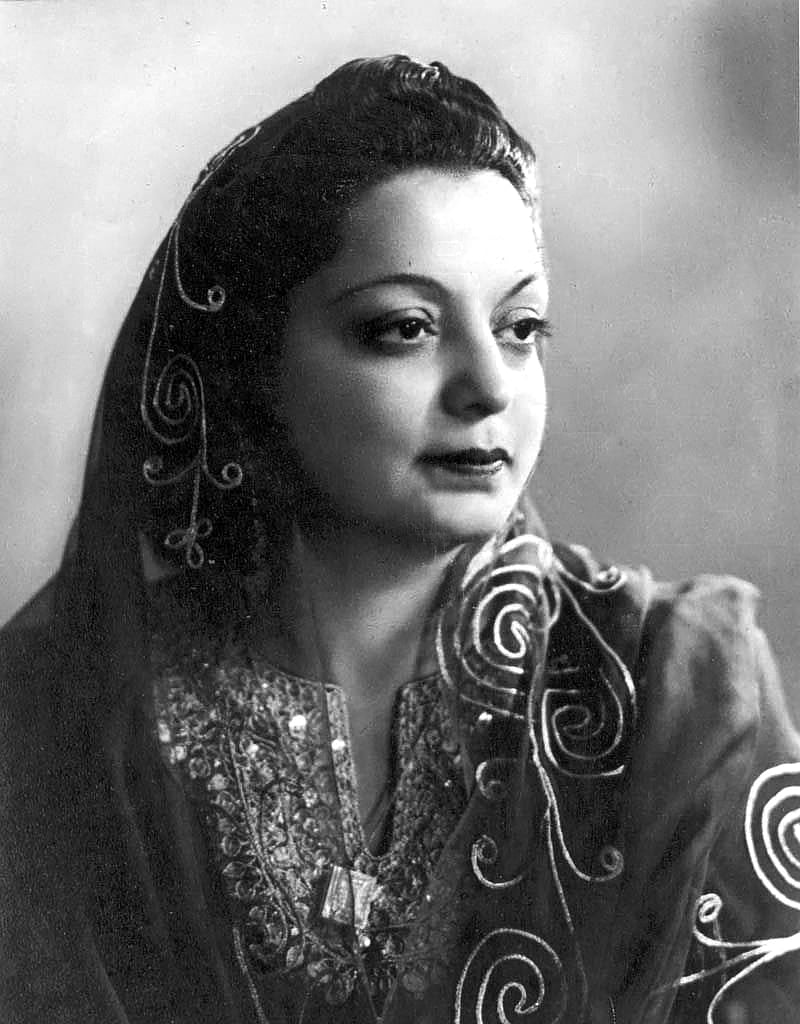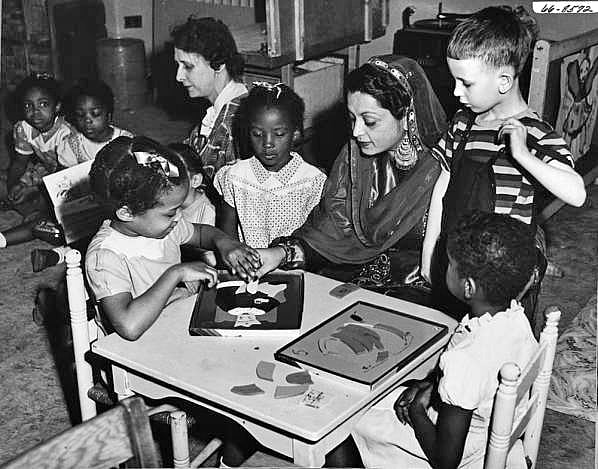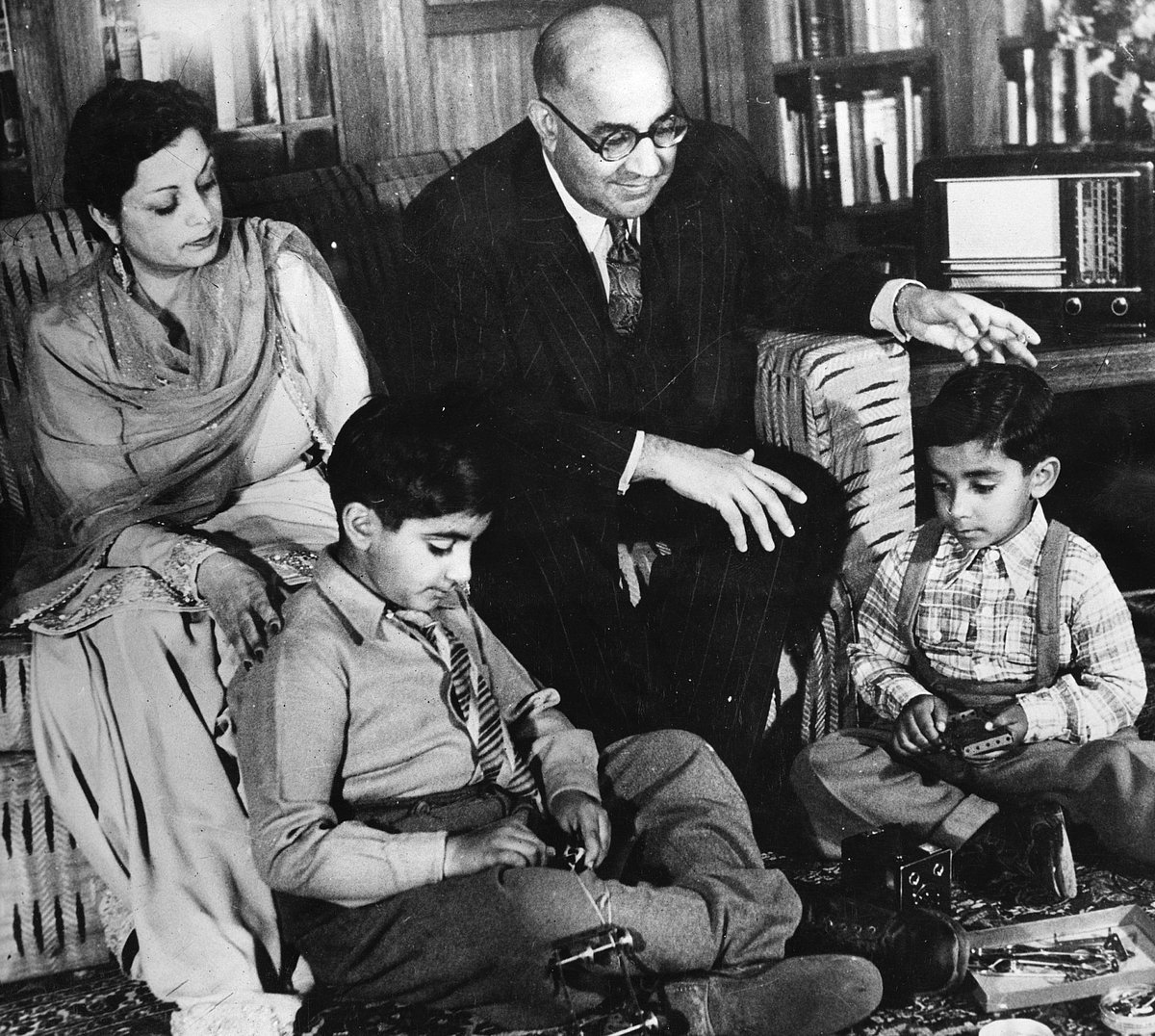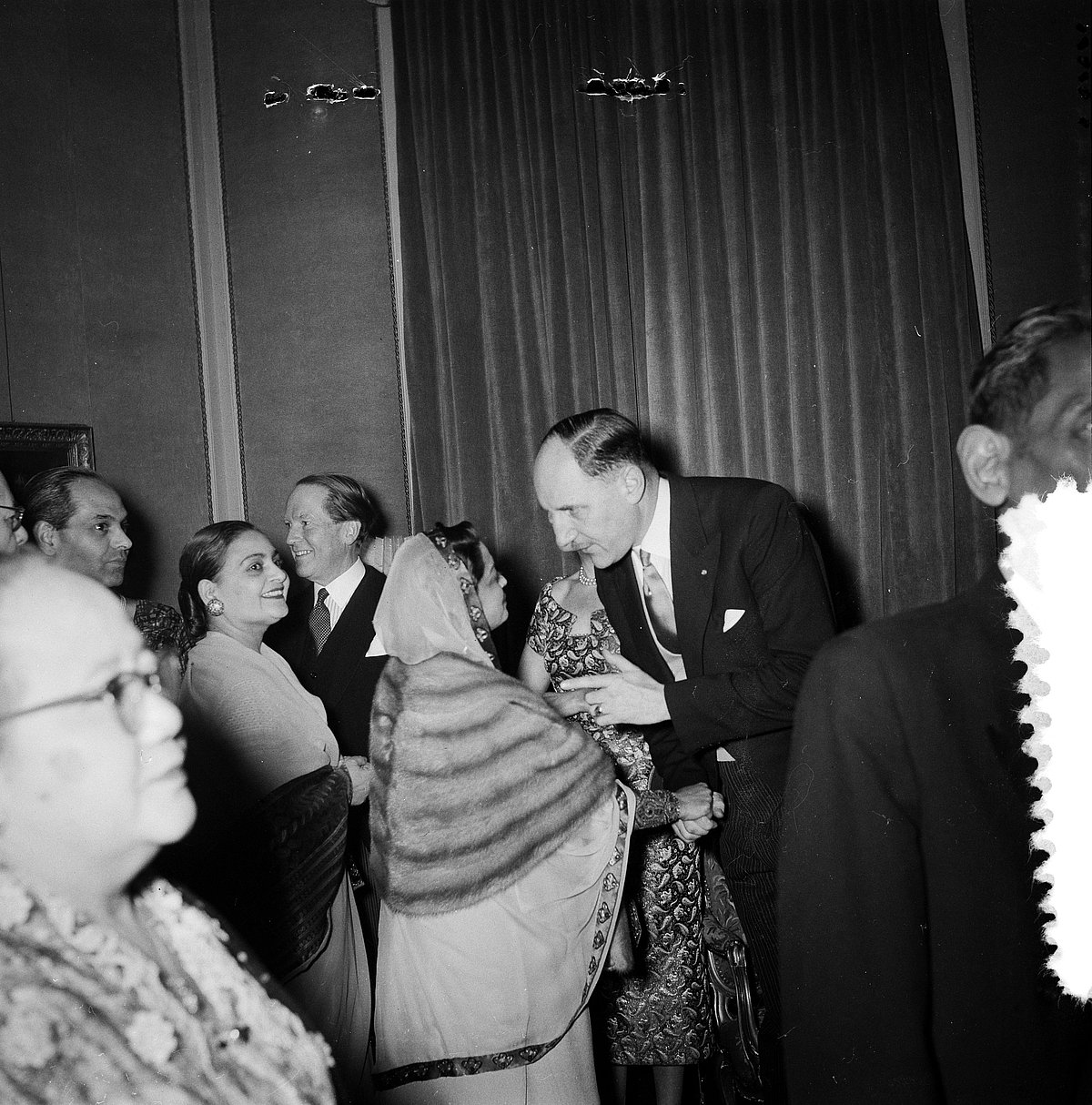The Begum: A Portrait of Ra’ana Liaquat Ali Khan, Pakistan’s Pioneering First Lady; From Almora to Pakistan
The book, written by an Indian and a Pakistani author, recreates the story of a young woman’s journey from Almora to a political career in the neighbouring country as wife of Pakistan’s first PM

It was on a hot day in April 1933 that Irene Ruth Margaret Pant embraced an unexpected destiny— she married Nawabzada Liaquat Ali Khan at Maidens Hotel in Delhi and adopted the Muslim name Gul-i-Ra’ana. She became Begum Liaquat Ali Khan, changing her given name and the religion she was born into.
The decision would lead her to a new country, Pakistan, and she would become its first lady—an unlikely destiny for a Christian girl born in Almora, a little town in the remote Kumaon region of the Himalayas where almost every face was familiar and there were hardly any strangers.
Fourteen years later, in 1947 she travelled to Pakistan, the country whose birth she and Liaquat Ali Khan had struggled and fought for. Muhammad Ali Jinnah took over as governor general of Pakistan, and his protégé and close friend Liaquat Ali Khan was appointed its first prime minister.
As Gul-i-Ra’ana—mostly known as Ra’ana—boarded a plane with her husband and two sons, Ashraf and Akber, to Pakistan, little did she realize what a wide chasm would soon open up between the two countries.
On the morning of 18 October 1951, Daniel Pant (her father) was sipping tea on the veranda of his comfortable cottage in Almora. His wife of fifty years had passed away just a few months ago, and the sense of loss was still strong. Daniel looked up at the sound of footsteps on the stone-paved courtyard and saw the familiar face of Arthur, a close friend of his second son, Norman.
It was barely 7 a.m. Arthur, a doctor, sometimes dropped in to check on his friend’s eighty-year-old father. But today his characteristic smile was missing. What was wrong? Daniel was about to call out to Norman, when his short, dapper son appeared from within the house.
His friend gestured to him and the two slipped away to confer in private. Daniel rose as he saw them return.
Still an imposing figure at his age, he was a man with strong features—a sharp, aquiline nose, piercing eyes and a decisive manner. Not for nothing had he been honoured with the title of Rai Sahib by the British government.
‘Tell me what’s going on,’ he demanded.
The two younger men faced him, utterly distraught.
‘I heard it on the radio,’ Arthur said, his tone grave. He drew a deep breath and continued, ‘Liaquat Ali Khan has been shot. It . . . it happened yesterday.’
‘Shot?’ Daniel whispered. ‘Is he badly injured?’ Arthur’s gaze dropped. ‘It seems the wound was fatal . . . ’
His brilliant, beautiful, spirited and headstrong daughter had married Liaquat Ali Khan eighteen years ago in the teeth of his opposition. Though the family has been described as ‘‘cosmopolitan’’ by neighbours, Daniel was not pleased when young Irene announced her decision. She was going to be the second wife of a man ten years her senior. Moreover, he was a Muslim.
The Pants were aware that he was rich and belonged to a family of landowners whose property stretched over two provinces—Eastern Punjab and the United Provinces; that he was a highly qualified barrister and above all a rising star in the freedom movement. Indeed, Nawabzada Liaquat Ali Khan was one of the most prominent leaders of the Muslim League.
His commitment and charisma had attracted Irene, who had been passionately involved in the cause of freedom from British rule since her student days in Lucknow. She had heard Liaquat Ali’s stirring speech against the Simon Commission in the UP Legislative Assembly with great interest in Lucknow in 1928. That was her first glimpse of her future husband, who was then an elected MLA from the Muzaffarnagar constituency.
The Pants, however, also knew that Liaquat Ali was married and had a young son. His religion permitted a second wife, but as Christians, this was an uncomfortable issue for them. Irene was not the first person in the family to take a step as radical as this. Daniel’s father, Taradutt Pant, a scholarly Brahmin, a physician by profession, had faced great outrage in his community when he had decided to embrace Christianity The protests, the ostracism, had been overwhelming. But he had stood firm. Now Irene was similarly turning her back on the faith of her fathers.
She earned the position of first lady of Pakistan. However, unlike many first ladies, she did not remain a ceremonial figure. She joined the government as the minister for minorities and women’s affairs in her husband’s cabinet.
Liaquat Ali Khan had been addressing a public meeting of the Muslim City League at Company Bagh, Rawalpindi, when suddenly shots rang out. There was pandemonium when the leader fell, badly wounded. He was immediately rushed to a hospital and given a blood transfusion, but two bullets had penetrated his chest and he had already lost a lot of blood. All attempts to save him failed, and he succumbed to his injuries.
The police had shot the killer, later identified as Saad Akbar Babrak, an Afghan national from the Pashtun Zadran tribe, who was said to be a professional assassin. But it was obvious he was not acting on his own; it was a political assassination.
Many facts pointed to the hired assassin theory. The man had been seated in a row close to the stage, reserved for officers of the Criminal Investigation Department (CID), which allowed him an easy shot at his target. He had been seized immediately and a police officer had shot him dead, thus effectively putting an end to any chance to question him.
While numerous theories made the rounds, the mystery of Liaquat Ali Khan’s murder was never solved. It thickened further when the officer investigating the case, Nawabzada Aitazuddin, died in an air crash and the documents he was carrying perished with him. In an uncanny coincidence, Benazir Bhutto was assassinated in the same place in 2007.
She taught at Indraprastha College, Delhi for only one and a half years because a chance event brought her in contact with Liaquat Ali Khan again. There are two versions of how this happened. One states that a colleague, to whom Irene had once mentioned that she had met Liaquat Ali in Lucknow, noticed a news item in the paper. She read it out to Irene—he had been elected deputy president of the UP Legislative Assembly.
Delighted with this progress in his career, Irene immediately wrote and congratulated him. The other version is that a friend from her university days wrote to her mentioning the news and suggested she congratulate him.
‘He wrote back saying it was a delightful surprise to know that she was in Delhi, because it was close to Karnal, his home town, and since he passed it on his way to Lucknow, he hoped she would have tea with him at Wenger’s Restaurant.’
Wenger’s, which has retained its position as a leading bakery to this day, was the brainchild of a young Swiss couple and very new in 1933. This elegant restaurant, with its pillared ballroom, was a posh hangout for socialites, frequented mostly by British and foreign officials and affluent Indians.
She had no assets or property in her own name when she arrived in Pakistan. This was to be the case throughout her life, and she didn’t own any property even at the time of her death.
Her husband had generously donated the palatial residence they called home in Delhi for fifteen years as the future residence of the Pakistani ambassador in India. He had gifted it to her at the time of their marriage and had even renamed it Gul-i-Ra’ana after her. When it was time to leave, he sought her permission for it to be donated to the Government of Pakistan. She did not hesitate even a moment and gave her wholehearted approval.
She left everything as it was in the house, and carried only a suitcase full of personal items and clothes.
Liaquat Ali Khan had set the standards of austerity for his family and she had little choice but to follow the style of living adopted by him.
He had been approached by some Evacuee Trust officials soon after he took over as the prime minister upon his return to Karachi. They requested him to file compensation claims against the huge ancestral agricultural properties that the family had owned in Karnal, India. He furiously retorted that they should come to him once they had settled all the Muslim refugees who had also left everything behind and then perhaps it might rightfully be his turn.
Begum Ra’ana herself once attempted to convey to him that they must perhaps think about their sons and do something for their future. The answer she received was, ‘Pakistan is there, what more do we need to do for them.’
An incident related by Pat, the elder son Ashraf’s wife, about her husband’s school years shows the simplicity and austerity the family always strictly adhered to. He had been sent to study at the snobbish Chiefs’ (Aitchison) College, Lahore, where only the sons of tribal chiefs and nawabs were admitted. On his first leave home, he told his father that he felt embarrassed as all his classmates had a personal servant from home to take care of their needs, and he had nobody. To which his father retorted, ‘Then come back home and study here as we have enough servants here’, and thus he was withdrawn from Chiefs’ College and had to join a school in Karachi.
A close family friend in those early days, Jamsheed Marker, described some of the special traits of Liaquat Ali Khan in his memoirs, which are summed up in the following words:
‘Nawabzada Liaquat Ali Khan, whose descent and background were steeped in nobility, carried them in his person, and he had no need of extraneous trappings.’ ‘Though a Nawabzada,’ Jinnah added in a prescient assessment of Liaquat, ‘he was a thorough proletarian.’ ‘Born and bred in the luxury of ancestral nobility, Liaquat died a virtual pauper.’
The first meeting of All Pakistan Women’s Association (APWA), was held in August 1949 at her official residence in Karachi. The inspiration for the creation of a national-level organization like APWA had come from the neighbouring countries of India and China which had well-established national-level women’s organizations.
Ra’ana’s contribution towards the emancipation of Pakistani women will be remembered as a lasting and irreplaceable legacy.
She played a decisive role in securing fixed allocation of special women’s seats in the Constituent Assembly in 1956. Liaquat Ali, as the prime minister, had already granted representative seats to women and it was now up to the women not to lose this privilege but to further augment it. In the first Constituent Assembly of 1950, there had been two female representatives, Begum Jahanara Shahnawaz from the western wing and Begum Shaista Ikramullah from the eastern wing.
In 1961, the APWA members, under the leadership of Begum Ra’ana, helped to engineer a crucial change in the Islamic marriage law by drafting important clauses and introducing the newly formulated Muslim Family Laws Ordinance. This was to have a far-reaching impact on the hitherto repressive, male centric interpretation of the Islamic marriage laws.
On 2 March 1961, the then President Field Marshal Ayub Khan of the Republic of Pakistan signed and passed the following amended family laws through an ordinance under which:
1) Unmitigated polygamy was abolished.
2) Consent of the present wife was made mandatory for contracting the second marriage.
3) Practice of instant divorce where a man could divorce his wife by repeating ‘I divorce you’ three times as per Islamic tradition was brought to a halt.
This extract has been taken with permission from Penguin Random House
Follow us on: Facebook, Twitter, Google News, Instagram
Join our official telegram channel (@nationalherald) and stay updated with the latest headlines




